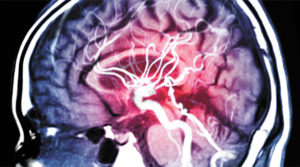 Keeping our brains healthy has become the forefront of the medical industry. With nearly 6 million people in the US with Dementia, that number is expected to grow exponentially. It’s now being touted as type III diabetes, as more and more research points to high blood sugars wreaking havoc on the brain’s functioning.
Keeping our brains healthy has become the forefront of the medical industry. With nearly 6 million people in the US with Dementia, that number is expected to grow exponentially. It’s now being touted as type III diabetes, as more and more research points to high blood sugars wreaking havoc on the brain’s functioning.
Forgetfulness, agitation and frustration, social withdraw, and difficulty with daily tasks, are all symptoms of Dementia. Alzheimer’s is the most progressive form of dementia. As the “tangles” in the Alzheimer’s brain become unattached, they rapidly disrupt the communication in the brain.
With Dementia, there are several different types, but one common and often overlooked type is vascular dementia, which usually affects individuals that have suffered a stroke or mini-stroke(s). Vascular dementia injures the brain in the area that controls memory, problem solving and speech. Brain atrophy is also considered to be progressive and widespread issue due to multiple complications.
Risk Factors & Causes
For years, medical professionals and researchers have been trying to find the exact cause of dementia. The main hallmarks of the disease are attributed to amyloid plaques, cerebral amyloid angiopathy, and neurofibrillary tangles. While these pathological markers are evident in many individuals with dementia, they are not always present in all; consequently, they cannot entirely account for the umbrella of cognitive disorders.
In a recent study, top neurologists and researchers went a few steps further, to shed light on a new discovery in the causes of Alzheimer’s. The study looked at the cerebrovascular pathologies, cardiovascular health, and microvascular disorders. Almost all individuals with dementia show signs of some vascular impairment on various levels.
Symptoms
The signs and symptoms of dementia are different throughout the various stages of the disease, but common indicators are as follows:
• Forgetfulness, especially short-term memory
• Change in personality
• Agitation/Frustration
• Difficulty with daily tasks
• Social withdraw
• Aphasia (speech disorders)
• Sundowning (confusion and sleeplessness in the evening)
Treatment Options
Some medications can slow the progression of the disease, but these are unfortunately not a curative treatment method. However, we do know that following helps patients stave off the disorder:
• Dietary guidance
• Physical activity
• Cognitive training and socialization
• Intensive monitoring and management of metabolic
and vascular risk factors
How can you Prevent Cognitive Decline and the Progression of the Disease?
Maintaining a healthy brain starts by eating a nutritious diet, such as the Mediterranean, MIND or DASH diet, which provide essential nutrients for the brain’s condition. All three of these diets emphasize eating plenty of vegetables, fruit, healthy fats, whole grains and lean protein (especially cold-water fish), while avoiding sugar, simple carbs and saturated fats. Eating this way is thought to prevent cognitive decline by proving the brain and body with antioxidants, and the good fats that it needs to function properly. Excessive sugar, simple carbohydrates, processed foods and chemicals are known to cause brain and memory degeneration.
Staying active and social is also a useful method for maintaining optimal brain health. Along with socialization, staying physically active is imperative in the production of oxygen-rich blood flow and can decrease your risk of Alzheimer’s and dementia.
A few years ago, there was a cognitive study performed, the first of its kind, which incorporated an interventional methodology to take a multi-domain approach to dementia prevention. The trial called the FINGER Study was conducted over a two-year period in Finland by a team of healthcare providers.
With over 1200 participants, the randomized tests were done on a control group and a multi-domain intervention group. The control group was given regular health advice on a weekly basis, while the intervention group was given tactical exercise, diets and performance studies three to four times per week.
The multi-domain intervention group’s protocol consisted of:
• Dietary guidance
• Physical activity
• Cognitive training and socialization
• Intensive monitoring and management of metabolic and vascular risk factors
The conclusion of the study showed that it is possible to prevent cognitive decline through physical exercise, diet, cognitive training and socialization, and by lower metabolic risk factors.
If caught early, this progressive disease can be delayed through specifically advanced treatment options like diet, exercise and refining memory skills. Neurologists and other professionally trained practitioners are essential in putting the pieces back together.
Turning 65?
New to Medicare?
New to the area?
We’re here to help!
Contact us to schedule an appointment:
Susan Tate
(352) 207-8607
sjtate@gate.net
James Tate
(352) 207-1645
Jamestate470@gmail.com
Check Also
Breakthrough in Neuropathy Treatment: How Summus Laser Therapy Offers Hope for Nerve Pain Sufferers
Neuropathy is a debilitating condition that affects millions of people worldwide, causing chronic pain, numbness, …
 Central Florida Health and Wellness Magazine Health and Wellness Articles of the Villages
Central Florida Health and Wellness Magazine Health and Wellness Articles of the Villages



